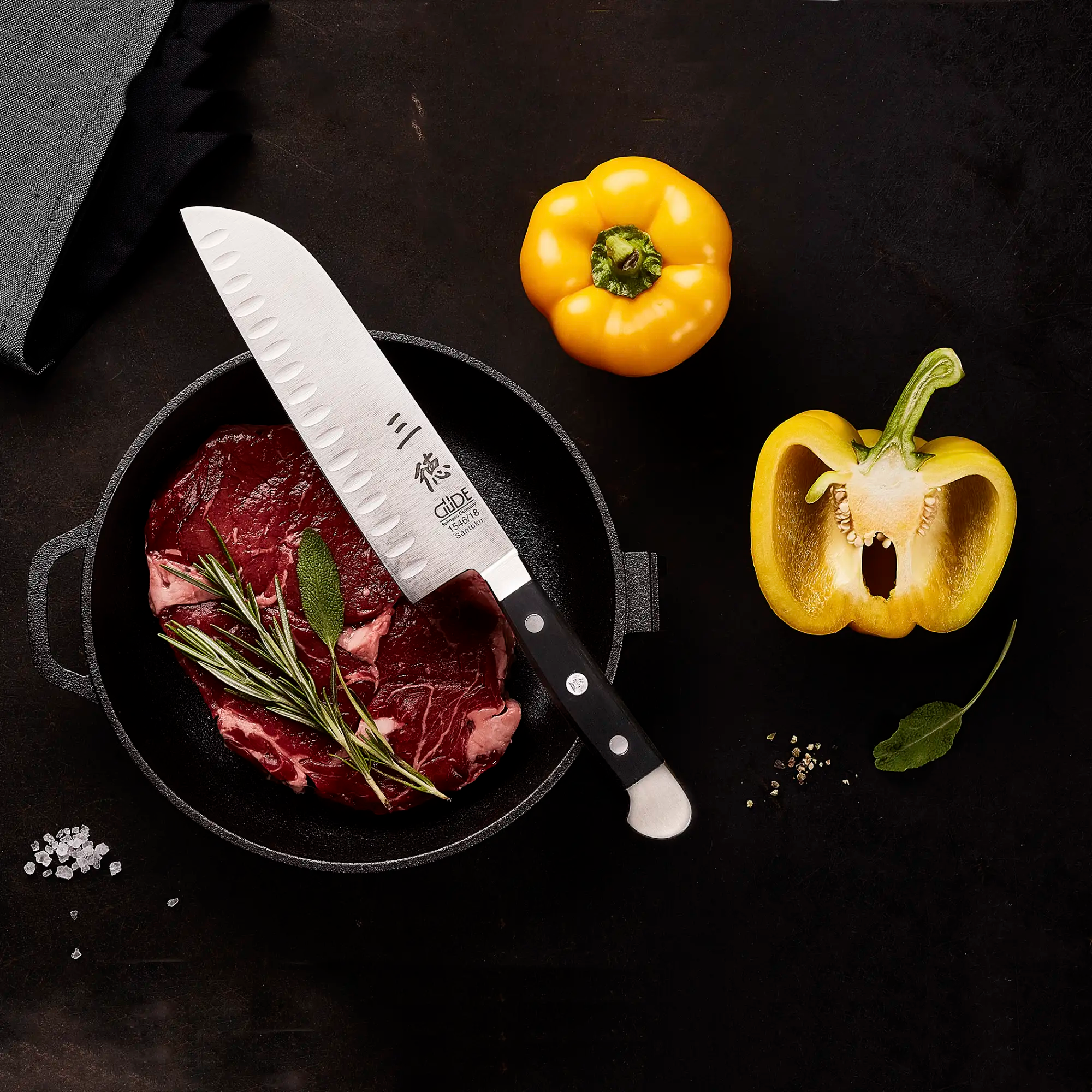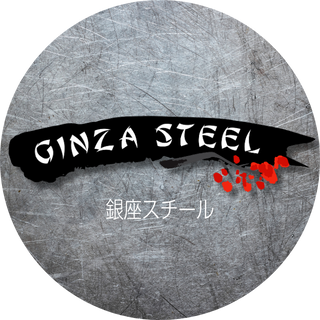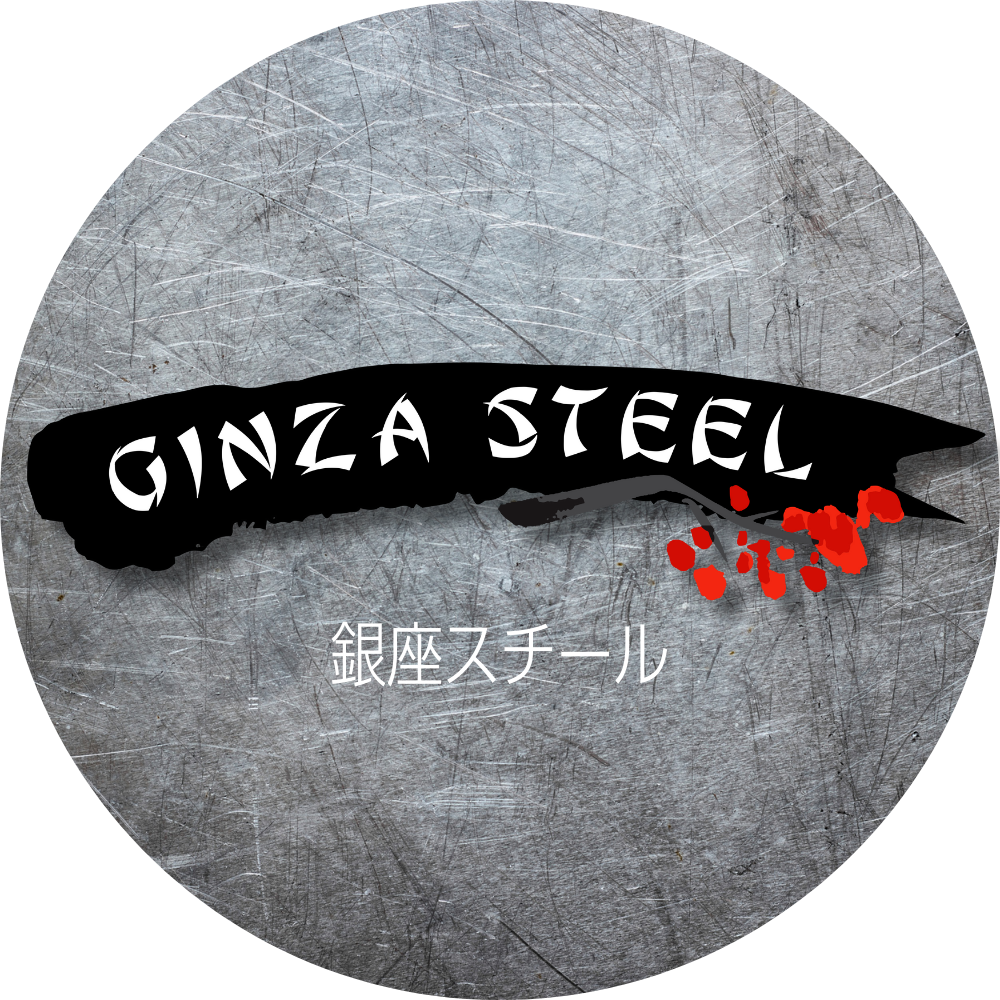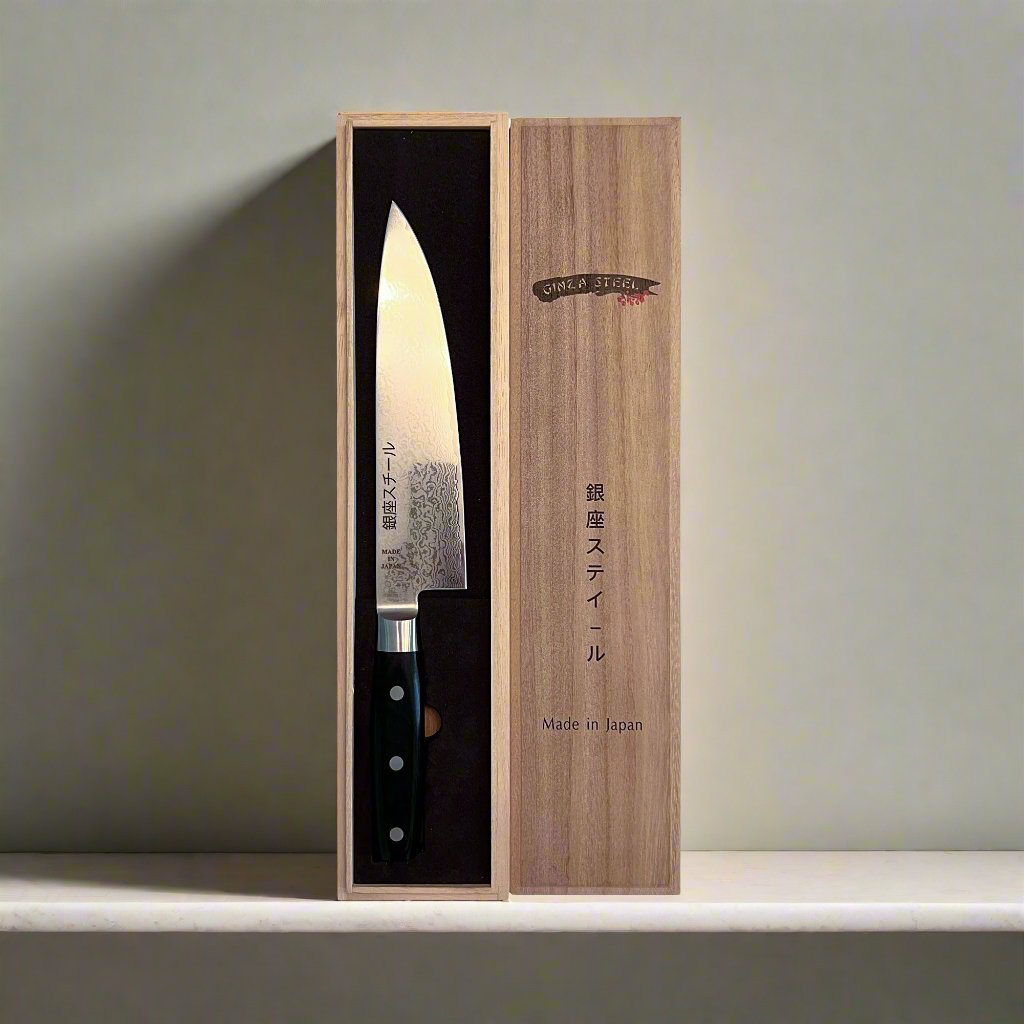Article: Discover the Best Santoku Knives - Top 10 Japanese Chef Favorites.

Discover the Best Santoku Knives - Top 10 Japanese Chef Favorites.
Top 10 Santoku Knives: Best Japanese Chef Knives
Introduction to Santoku Knives
The Santoku knife has garnered a significant following in the West, making its mark as a versatile and essential kitchen tool. While these knives surpass budget options from grocery stores, there are even better Santoku knives that provide exceptional value and performance. This guide highlights the top 10 Santoku knives, catering to various budgets and preferences, and offers tips to help you choose the ideal Santoku for your kitchen needs.
Understanding Santoku Knives
Santoku, one of the three essential Japanese kitchen knives (alongside Gyuto and Kiritsuke), features a medium-length blade (5-7 inches) with a distinctive sheepsfoot design. This design lacks a pointy tip but offers sharpness for versatile use in slicing, dicing, and mincing. Santoku, meaning "three uses," emphasizes its capability to handle multiple kitchen tasks efficiently. The straight edge may require some adjustment for those used to Western chef's knives, but its versatility makes it an invaluable kitchen tool.
Top 10 Santoku Knives
-
1. Takayama 180

Hand-forged in Japan, the Takayama 180 features a Swedish 19C27 high carbon stainless steel blade with tsuchime (round hammering marks) to prevent food from sticking. Its lightweight design and elegant wa-handle make it perfect for prolonged use in fast-paced kitchens.
Pros:- Lightweight
- Perfectly balanced
- Razor-sharp edge
- Comfortable handle
Cons:- Hand wash only
- Some may prefer a heavier blade
-
2. Hayami 180

The Hayami 180 combines a familiar chef's knife feel with a 33-layer Damascus VG-10 steel blade. Its antibacterial handle and semi-bolster ensure confidence and control during use.
Pros:- Antibacterial handle
- Excellent edge retention
- Damascus steel blade
Cons:- Hand wash only
-
3. GÜDE Solingen

Made in Germany, the GÜDE Santoku features a 7-inch blade from chrome-vanadium-molybdenum steel. Its riveted handle offers a comfortable, familiar grip, ideal for chefs intimidated by traditional Japanese handles.
Pros:- Durable
- Handmade in Germany
- Robust cutting
Cons:- Hand wash only
- Relatively expensive
-
4. Hagakure 20

An excellent budget option, Hagakure 20 boasts a VG-10 steel blade, elegant handle, and Damascus construction for under $100. It's perfect for culinary students and home cooks.
Pros:- Affordable
- Dishwasher-safe
- Good edge retention
Cons:- Not handmade
- May not impress professional chefs
-
5. Kanetsune 860 Series

The Kanetsune 860 Series, hand-forged in Japan, features a VG-10 blade with a luxurious wooden wa-handle. Its lightweight and forward balance make it ideal for professional chefs.
Pros:- Excellent quality
- Razor-sharp blade
- Elegant handle
Cons:- Expensive
- Hand wash only
Shop at GinzaSteel.com
-
6. Kasumi 180

The Kasumi 180 blends Western and Japanese styles with a VG-10 blade and mahogany handle. Its 7-inch blade is perfect for those transitioning to Japanese knives.
Pros:- Razor-sharp edge
- Sturdy handle
- Good edge retention
Cons:- Hand wash only
- Slightly heavy
-
7. Matsue 165

Matsue 165 features an ergonomic handle and sharp blade, ensuring comfortable and prolonged use. Its design suits even those with smaller hands.
Pros:- Ergonomic handle
- Sharp blade
- Good edge retention
Cons:- Handle requires adjustment
- Hand wash only
-
8. Grohmann Santoku Knife

Made in Canada, the Grohmann Santoku features a stainless steel blade and rosewood handle. Its familiar design with hollow edge points prevents food from sticking.
Pros:- Excellent build quality
- Affordable
- Granton edge
Cons:- Hand wash only
- Slightly heavy
-
9. Kanetsune KC-950

The Kanetsune KC-950, with its traditional Japanese appearance, features a DSR1K6 steel blade and laminated wood handle. It's an affordable introduction to Japanese knives.
Pros:- Lightweight
- Affordable
- Versatile
Cons:- Moderate edge retention
- Hand wash only
-
10. Okuma 195

The Okuma 195 is a Kiritsuke-style Santoku with an AUS-10 steel blade and pointed tip. Ideal for butchering and detailed cutting, this knife offers sharpness and robustness .
Pros:- Incredibly sharp
- Robust blade
- Pointed tip
Cons:- Not a traditional Santoku
- Hand wash only
Choosing the Best Santoku Knife
Consider these factors when selecting a Santoku knife:
- Budget: Quality Santoku knives range from $75 to several hundred dollars. Choose one that fits your budget.
- Blade Length: Santoku blades range from 6 to 8 inches. Select a length based on your cutting needs.
- Profession: Professional chefs should prioritize sharpness and edge retention. Look for higher Rockwell hardness ratings.
- Personal Preferences: Consider your preferences for blade material, handle design, and knife weight.
Conclusion
Explore our curated selection of Santoku knives to find the perfect addition to your kitchen. Order your chosen knife from our website or Amazon store and elevate your culinary skills with a top-quality Santoku.
Explore all Santoku Knives


